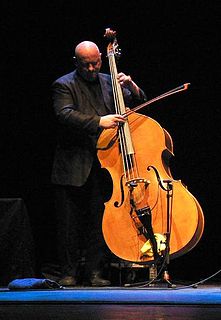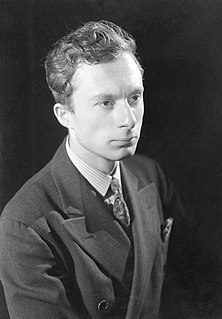A Quote by Alan Arkin
But one of the things I learned from improvising is that all of life is an improvisation, whether you like it or not. Some of the greatest scientific discoveries of the 20th century came out of people dropping things.
Related Quotes
D-Day represents the greatest achievement of the american people and system in the 20th century. It was the pivot point of the 20th century. It was the day on which the decision was made as to who was going to rule in this world in the second half of the 20th century. Is it going to be Nazism, is it going to be communism, or are the democracies going to prevail?
Improvisation in general is good, and improvising material into themes, turning the material into something codified and repeatable, taught me scenic structure and dramatic gambits that work and things that are appealing both as a performer and an audience member, like you know, what does "want" really mean in a scene, and how do you achieve your want, and how is that expressed, and how do you achieve closure? Those are all things that I learned performing at the cabaret after just doing the same scenes over and over and over again over the years, with my own ability to change.
There's this Indian fellow who worked out a cycle like the idea of stone-age, bronze-age, only he did it on an Indian one. The cycle goes from nothing until now and 20th century and then on and right around the cycle until the people are really grooving and then just sinks back into ignorance until it gets back into the beginning again. So the 20th century is a fraction of that cycle, and how many of those cycles has it done yet? It's done as many as you think and all these times it's been through exactly the same things, and it'll be this again.
A dining club which I was involved in at Oxford University invited Sir Isaiah Berlin to dinner, who I believe was probably the greatest liberal philosopher in the 20th century. I sat beside him and we spoke about liberal philosophy and the events of the 20th century all night over dinner - it was unforgettable!



































